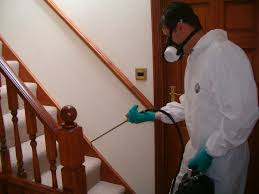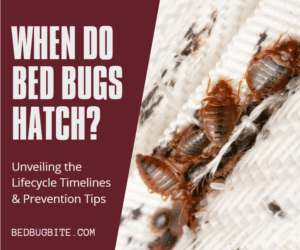Will Bed Bugs die in hot water? You might be surprised with the answer! If you’ve ever had bed bugs in your home, you know that they are not easy to get rid of! Once they take up residence on your mattress, in your furniture, floors, or even in your sofa cushions they cause chaos!
So how do you get rid of your unwanted house guests? While several techniques are available, one of the most popular involves steaming, which kills the pests at high temperatures by desiccating them (otherwise known as drying them out.) If you’re wondering whether this technique works, you’re not alone. Keep reading to find out will bed bugs die in hot water!
Bed Bugs Are Everywhere…
Bed bugs are a common problem in many parts of the world. They are parasites, so they feed on the
blood of humans or animals. Luckily, bed bugs do not transmit diseases like HIV or malaria. The only health risk is an allergic reaction to their bite. It is hard to tell if you have bed bugs because they can come out at night and hide during the day. This makes them difficult to find until it is too late.
However, if you think these pests have invaded your home, there are ways to get rid of them before
they increase even more. One way to treat these pests is to use a steamer that will kill the eggs, adults, and larvae with heat for the treatment.
Will Bed Bugs Die in Hot Water?
Can bed bugs survive in hot water? Bed bugs can’t survive long periods in the sun. But how about hot water? Well, it depends on how hot the water is. The hotter, the better, but it’s recommended that you use at least 130 degrees Fahrenheit if you want to get rid of bed bugs. Boiling water can go up to 212°F, so if you’re only able to use the stovetop, that’s an option too.
This is why laundering infested linens, curtains, and clothing at this high temperature is a recommended step in comprehensive bed bug control. But it’s not just about dunking them in any hot water – maintaining that critical temperature is paramount. Many modern washing machines have a ‘sanitize’ or ‘hot’ cycle, designed explicitly for such needs. And while the washing process is essential, the subsequent high-heat drying cycle amplifies the extermination process, ensuring no bugs or eggs survive.
What if a Stove is Unavailable?
If you don’t have access to a stove or are worried about harming your pipes with boiling water, using
dish soap and very hot tap water should also do the trick! All you need to do is wash any sheets, blankets, clothes and other items that could’ve come into contact with bed bugs. Make sure not to put these items back in the same spot they were before you cleaned them without treating those areas first!
Eradicating These Pests

Bed bugs can live up to 12 months without a blood meal, but they don’t need one daily. In fact, they can go as long as 18 days without feeding. While it is true that bed bugs cannot survive in extremely high temperatures, they do not need to be exposed to extreme heat for an extended period either.
In other words, bed bugs will die if you put them into boiling water for a few minutes. However, the more likely scenario is that if your apartment gets infested with bed bugs and you want to get rid of them, you’ll have better luck just buying a steamer or getting the help of an exterminator. Keep in mind with steam treatment if you are using it on wood or other vulnerable surfaces there is the potential to warp them. Boiling water will help but always treat the areas that there are signs of activity to prevent reinfestation!



